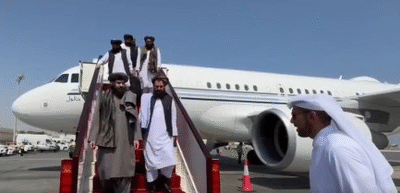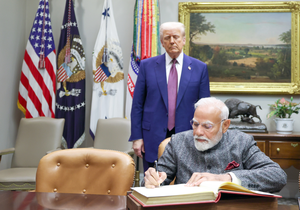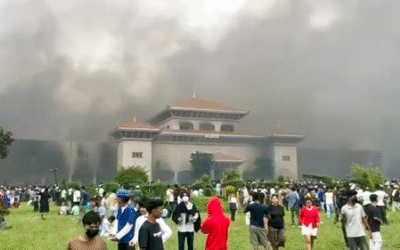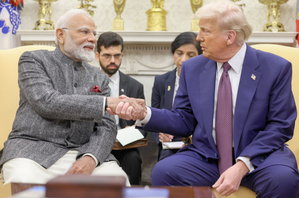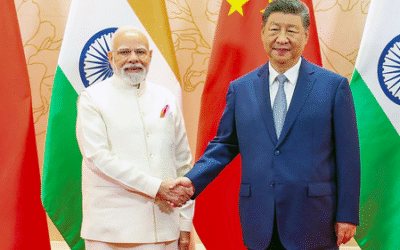New Delhi (IANS) India’s Intelligence agencies have warned of a sinister plot in the making in which the primary targets would be the northeastern states. The agencies have picked up specific intercepts suggesting the culmination of several terror groups to carry out attacks in the northeastern states.
Under the Modi government, plenty of emphasis has been given to the northeast. Crores have been spent for development and this has led to job creation and eventually the gradually decline of insurgency.
The idea now is to disrupt peace and make sure that the northeast returns to those days when insurgency had become a new normal and peace was a far cry.
It is not just the terror groups in Pakistan and Bangladesh that are in play here to carry out these attacks.
Funding by the ISI has gone up in a major way to revive many of these insurgent groups that had been active in the past.
Earlier, the ISI would fund these groups and also arm them through networks in Bhutan and Myanmar.
While that has been revived, Pakistan today has another frontier in the form of Bangladesh to carry out these activities.
An Intelligence Bureau official says that the primary intention is to disrupt peace and stall development.
Pakistan wants to drive across a message to the people of northeast that the Indian government is incapable of protecting them.
The aim is to cause unrest so that the people turn against the Indian state, the official also explained.
The ISI has been coordinating with several top terrorists both in Bangladesh as well as Pakistan. The officer said that their intercepts suggest that in recent weeks, the visits by Pakistani officials to Bangladesh have gone up.
The same is the case with Bangladesh, where its officials and terrorists have frequented Pakistan. Experts say that when the Modi government came to power in 2014, the main emphasis was on developing the northeast and ensuring that the people had opportunities.
The ISI is aware that the northeastern side of India has been a sensitive one and any trouble in this region could go out of control. They want things to go back to square one, like how it was prior to 2014, experts also said.
It is a multi-pronged strategy that the ISI has adapted to execute this sinister plot.
It is not just using terrorists to carry out this plan. It is sponsoring trips of radical preachers such as Zakir Naik and Ibtisam Elahi Zaheer to Bangladesh.
Zakir Naik who is on India’s ‘Most Wanted’ list has taken refuge in Malaysia. He would be in Bangladesh on a month-long visit and go to many places including those close to India’s border. The purpose of his visit is to spread radical Islam and change the perception of the people of Bangladesh.
Naik openly advocates for a Sharia law and this fits in the scheme of things of the Jamaat-e-Islami, which wants to introduce the same in the country.
The visit by Zaheer, a close aide of Lashkar-e-Tayiba founder, Hafiz Saeed is also part of the plan to disrupt peace in the northeast. While he would visit many places in Bangladesh, his programmes at Rangpur, Lalmonirhat, and Nilphamari are of extreme concern.
These places are along the India-Bangladesh border. Zaheer has a history of inciting violence and spreading hate. His programmes are aimed at instilling a strong anti-India sentiment. He would try and ensure that the people are incited and there is violence along the border.
The ISI would hope that if Zaheer is successful in his mission, then violence would erupt along the border and the same would spread like wildfire into the northeastern states.
An official said that if violence breaks out in the northeast, then terrorists would find it easy to infiltrate and carry out attacks since the security mechanism in India would be busy in dousing the fire.
–IANS


